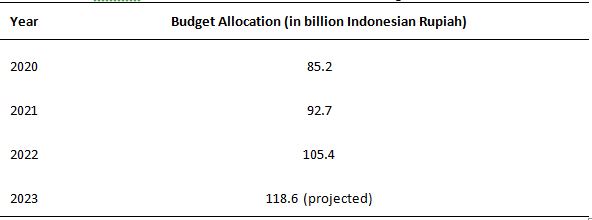Fiscal Policy to Encourage Investment in the Marine Logistics Sector
DOI:
https://doi.org/10.62012/collaborate.v2i1.59Keywords:
Marine Logistics Sector, Investment, Fiscal Policy, Tax Incentives, Subsidies, Maritime Infrastructure, Regulations, Law Enforcement.Abstract
The marine logistics sector plays a crucial role in a country's economic growth, particularly for archipelagic nations like Indonesia. However, investment levels in this sector remain low, which can hinder potential economic growth. This research aims to analyze various fiscal policies that can encourage investment in the marine logistics sector. The methods used in this research are qualitative and quantitative descriptive analysis. The results indicate that fiscal policies such as tax incentives, subsidies, and government funds allocated for maritime infrastructure development can increase the attractiveness of investment in this sector. Tax incentives, such as reductions in corporate income tax rates, exemptions or reductions in import taxes for equipment, and tax allowance facilities, can be effective instruments to attract investment. Subsidies, such as capital assistance, low-interest loans, and operational cost compensation, can also help reduce investment risks and encourage investor participation. Additionally, adequate allocation of government funds for the development of maritime infrastructure, such as ports, docks, and other logistics facilities, is crucial for enhancing the sector's efficiency and competitiveness. However, fiscal policies alone are not enough. Improved regulations and better law enforcement are also necessary to create a conducive investment climate in the marine logistics sector.
Downloads
References
UNCTAD, "Review of Maritime Transport 2018", United Nations Conference on Trade and Development, Geneva, Switzerland, 2018.
Y. Zhang and Z. Huang, "The Challenges and Opportunities of Investing in the Marine Logistics Sector", Journal of Coastal Research, vol. 93, no. sp1, pp. 212-219, 2018.
H. Meersman, E. Van de Voorde, and T. Vanelslander, "Port Infrastructure Finance", in Port Economics, 2nd ed., London, UK: Routledge, 2020, pp. 139-167.
Drewry Maritime Research, "Global Container Terminal Operators Annual Review and Forecast", London, UK, 2020.
M. Acciaro and G. Wilmsmeier, "Fiscal Policy Frameworks for the Maritime Sector", in The Routledge Handbook of Transport Economics, 1st ed., London, UK: Routledge, 2018, pp. 325-339.
T. S. Yean and S. B. Das, "The ASEAN Economic Community and the logistics sector", in The ASEAN Economic Community: A Work in Progress, Singapore: ISEAS Publishing, 2015, pp. 272-303. [7] S. Akbari, "The role of free zones in the development of the maritime industry: The case of Jebel Ali Free Zone", Journal of Shipping and Trade, vol. 5, no. 1, pp. 1-12, 2020.
UNCTAD, "Review of Maritime Transport 2019", United Nations Conference on Trade and Development, Geneva, Switzerland, 2019.
N. Muammar dan A. Mosyofa, “KEBIJAKAN MARITIM INDONESIA DALAM MENUNJANG SISTEM KEAMANAN TRANSPORTASI LAUT”, SENSISTEK, vol. 7, no. 1, hlm. 46-50, Mei 2024.


















